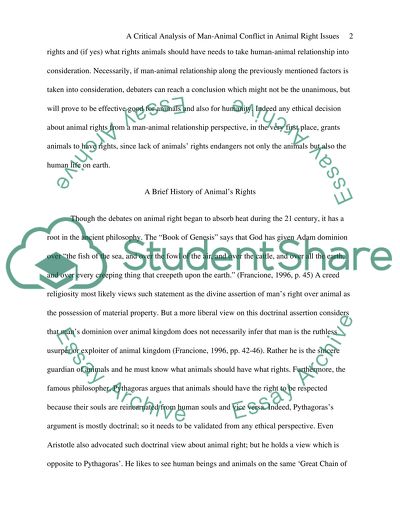Cite this document
(“Animal Rights Research Paper Example | Topics and Well Written Essays - 2000 words”, n.d.)
Retrieved from https://studentshare.org/english/1471811-animal-rights
Retrieved from https://studentshare.org/english/1471811-animal-rights
(Animal Rights Research Paper Example | Topics and Well Written Essays - 2000 Words)
https://studentshare.org/english/1471811-animal-rights.
https://studentshare.org/english/1471811-animal-rights.
“Animal Rights Research Paper Example | Topics and Well Written Essays - 2000 Words”, n.d. https://studentshare.org/english/1471811-animal-rights.


